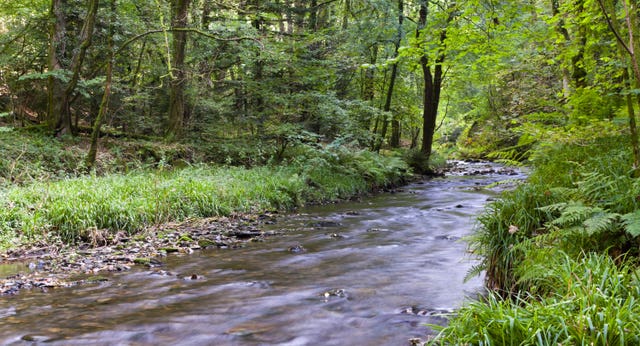England’s rivers are filled with a “chemical cocktail” of sewage, agricultural waste and plastic putting public health and nature at risk, a cross-party parliamentary group has said.
In a new report published on Thursday, the Environmental Audit Committee said only 14% of English rivers meet good ecological status.
It added that it has been tricky to get a complete overview of the health of rivers due to “outdated, underfunded and inadequate monitoring” and until the passing of the Environment Act last year, there had been a “lack of political will” to improve water quality.

Other concerns the committee has include plants, invertebrates and fish being suffocated as a result of the build-up of high levels of nutrients, such as phosphorus and nitrogen, from sewage and animal waste and the extent of sewage discharge, misreporting and large spills by water companies.
In its report, it added that fats, oils and greases, and cleaning and hygiene products containing plastic, are also causing problems for drainage systems – while single-use plastic hygiene products are clogging up drains and sewage works.
Its recommendations include urging for regulatory action, water company investment and ross-catchment collaboration to restore rivers to good ecological health.
The committee says Ofwat should examine the powers it has to limit payment of bonuses to water company executives until the permit breaches cease and that the Environment Agency should consider creating an online platform where scientists can upload their data on water quality.

“Today, we are calling for these relevant bodies to come together and develop a system fit for the future. Monitoring regimes need to be reviewed, enforcement needs to be ramped up, and even public awareness needs boosting on what can and cannot be poured down drains or flushed down the toilet. So many emerging pollutants are being missed by inadequate and insufficient monitoring, and court actions against polluters have fallen dramatically.
“To deliver real change and improve the state of our rivers, a wide range of stakeholders must come together including the Government, regulators and water companies. The Environment Act signalled the first welcome sign of political will to tackle this issue. I hope this marks the start of Government regulatory and polluter action to improve the state of our rivers for all to enjoy.”
Environment Minister Rebecca Pow said the Government welcomes the report and was going “further and faster than any other government to protect and enhance the health of rivers and seas”.
An Environment Agency spokesperson said: “The EA has launched a major investigation into possible unauthorised spills at thousands of sewage treatment works, secured fines of over £137 million since 2015 for pollution incidents and placed new requirements on water companies to significantly increase their monitoring and reporting so that everyone can see what is happening. We are also working with farmers to support environmentally friendly farming that doesn’t damage water quality.
“Everyone should understand the scale of the challenges and the investment needed to put things right. We welcome the EAC’s recommendations and will respond in due course.”






